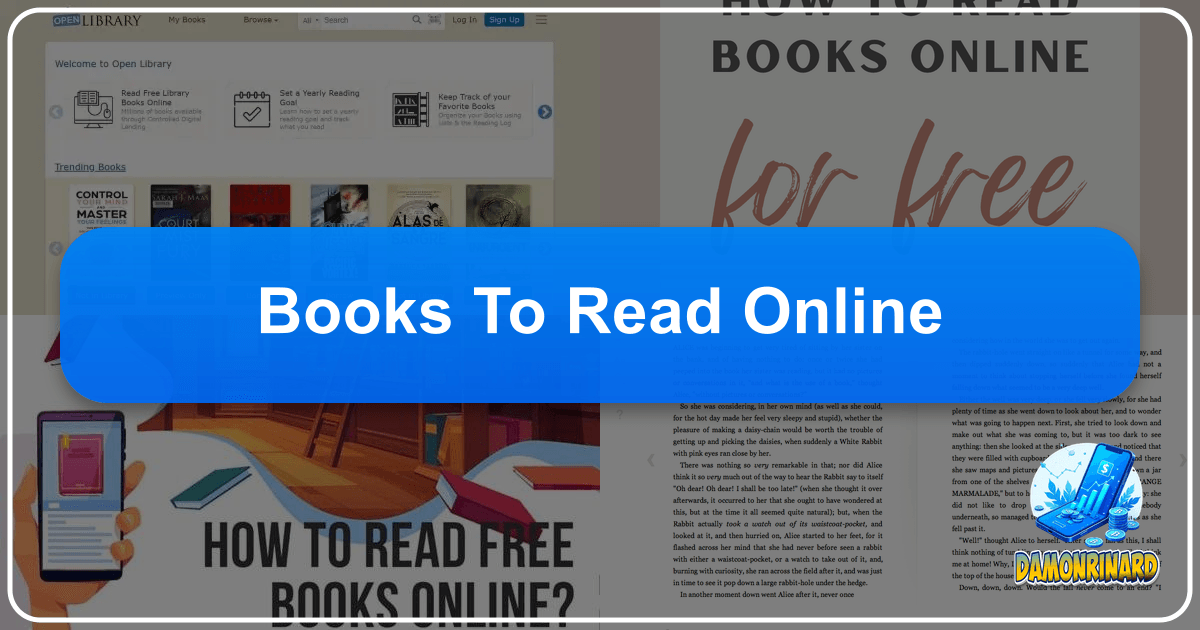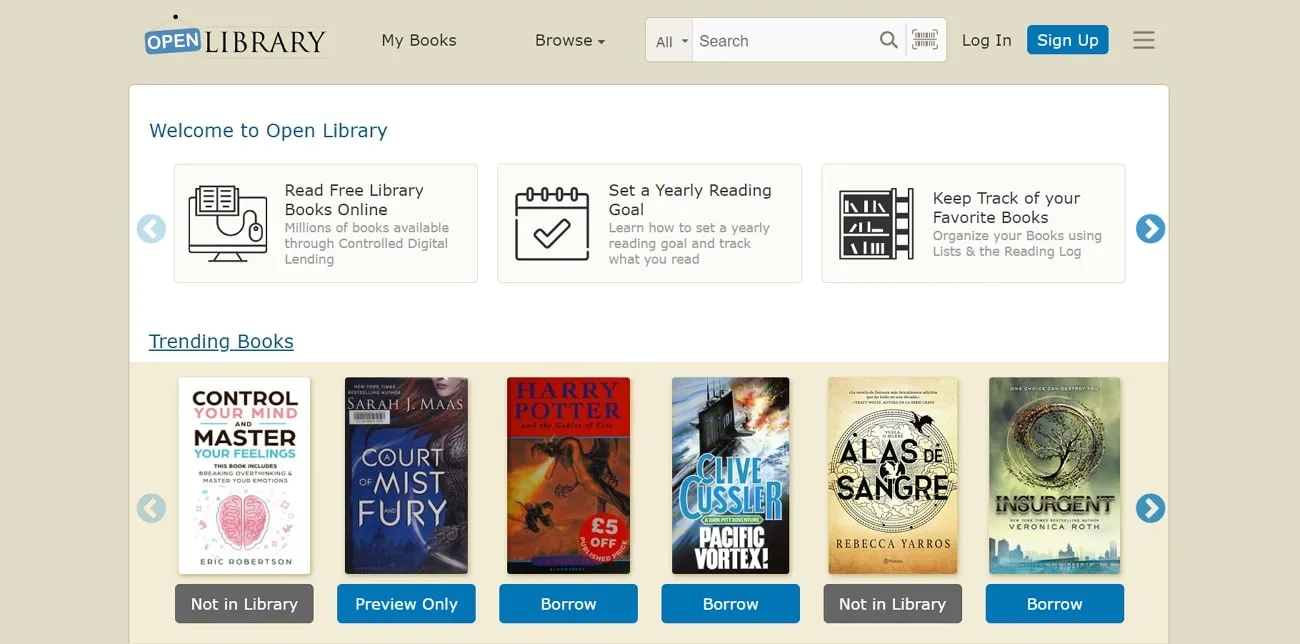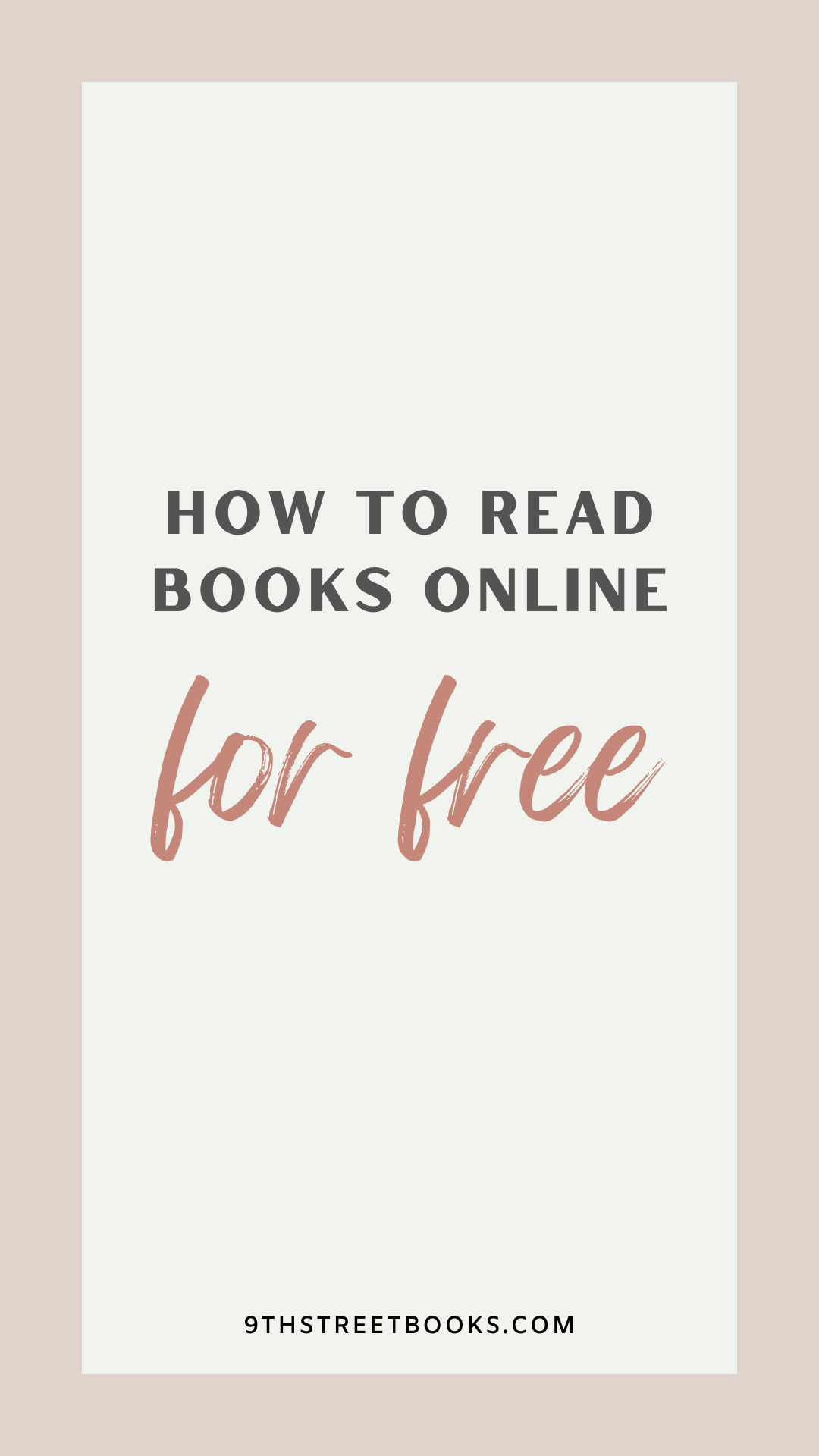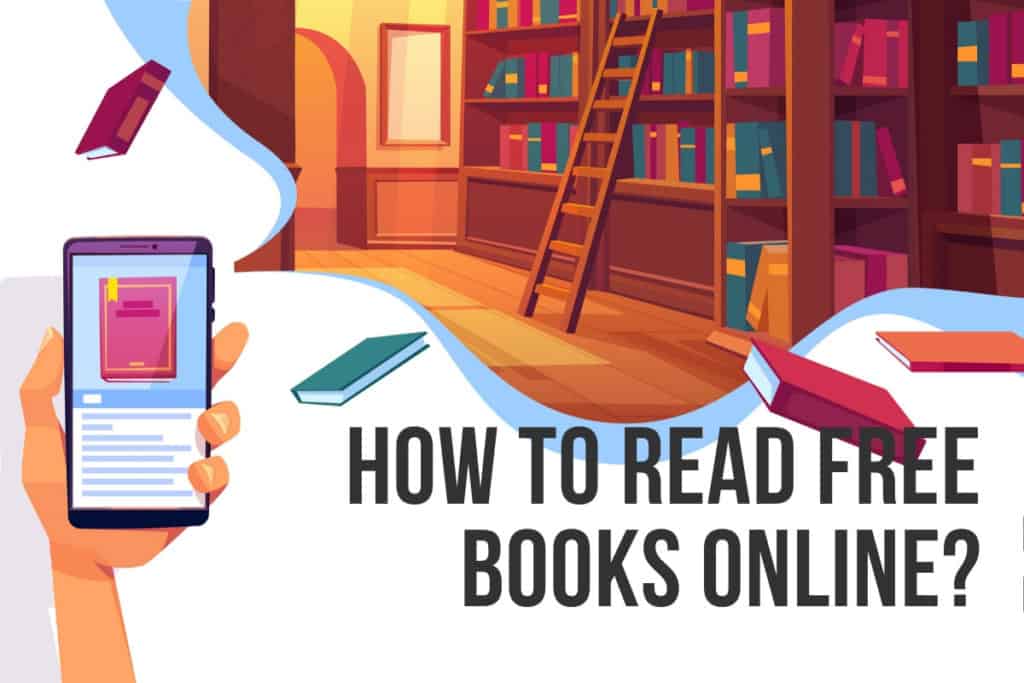Books to Read Online: A Comprehensive Guide to Free and Legal Resources

The allure of diving into captivating novels and books is undeniable. The thrill of losing yourself in a compelling story, exploring new worlds, and expanding your understanding of the human experience is a powerful draw for millions worldwide. But the cost of acquiring new books can quickly become prohibitive. Fortunately, a wealth of resources exists online, offering a vast selection of books to read online, completely legally and without any need for downloads or paid subscriptions. This article explores the best avenues for accessing this digital treasure trove, while also examining the advantages and disadvantages of online reading and introducing a robust offline solution for an uninterrupted reading experience.
Part 1: Top Online Websites to Read Books for Free, No Download Required

Numerous websites provide a rich and varied selection of books available to read online without the need for downloads. While the experience might not always match the tactile satisfaction of a physical book, the convenience and accessibility are undeniable. Below, we explore some of the top contenders in 2024, highlighting their strengths and weaknesses. Remember, always respect copyright laws and only access books that are legally available for free online reading.
Public Domain Resources: Project Gutenberg and Internet Archive
Two giants in the world of free online books are Project Gutenberg and the Internet Archive. Project Gutenberg, a pioneer in digital book archiving, offers a massive collection of public domain books. These are works whose copyrights have expired, making them freely available to the public. The selection is vast, encompassing classics of literature, historical texts, and more. While the website’s interface might feel a bit dated, its sheer volume of content more than compensates. Users can read books directly on the site or download them in various formats (EPUB, MOBI, TXT, etc.) for offline reading.
The Internet Archive, a broader digital library, also features an extensive collection of digitized books. This includes many public domain titles, alongside other digital artifacts such as audio recordings, videos, and websites. The Internet Archive’s search functionality is highly advanced, allowing users to filter by author, title, subject, and date. Many books can be read directly in a built-in reader, offering features like adjustable font sizes and a full-screen mode. Furthermore, the Internet Archive often provides multiple formats for download, ensuring compatibility across various devices. In addition to reading, the archive sometimes hosts audiobook versions of titles through its association with LibriVox.

Exploring Other Free Online Libraries: Open Library and Others
Open Library, a project of the Internet Archive, is another excellent resource for accessing free books online. It focuses on providing a comprehensive catalog of library records and makes millions of titles “accessible,” meaning they are freely available to read online. While it shares its vast collection with the Internet Archive, its interface is often considered more user-friendly, facilitating a smoother search experience.

Additional websites offering free online books include: ManyBooks, offering a mix of classics and contemporary works; Authorama, featuring a curated selection of public domain books; and Digitalbook.io, with a focus on web novels and a user-friendly interface. Remember to always check the copyright status of any book before reading or downloading.
Specialized Collections: Children’s Literature and Academic Resources
Beyond general-interest collections, specific online resources cater to particular niches. For example, websites dedicated to children’s literature offer a wide selection of age-appropriate titles, often with interactive elements that enhance the reading experience. Similarly, academic institutions and organizations often provide free access to scholarly articles, textbooks, and other educational resources. These resources can be invaluable for students and researchers alike.
Part 2: Offline Reading: UPDF and the Advantages of Offline Access
While online reading offers unmatched convenience and accessibility, it’s inherently reliant on an active internet connection. Interruptions to service or a lack of connectivity can disrupt the reading flow. To address this limitation, dedicated offline eBook readers offer a seamless solution. UPDF, for instance, is a powerful PDF reader that allows users to download books and read them anytime, anywhere, without needing an internet connection.
UPDF: A Comprehensive Offline eBook Reader
UPDF’s features extend beyond basic reading functionality. It empowers users to personalize their reading experience with features like:
-
Multiple Layouts: Users can customize the display of PDFs with single-page or two-page views, and adjust scrolling options for optimal comfort.
-
Light/Dark Mode: The ability to switch between light and dark modes enhances readability in various lighting conditions, reducing eye strain.
-
Annotation Tools: UPDF facilitates active engagement with texts, enabling users to highlight passages, add notes, and create bookmarks for later reference.
-
AI-Powered Features: Integrated AI functionality offers powerful tools for summarizing text, translating languages, and clarifying complex terminology. This significantly enhances accessibility and comprehension.
-
Compression and Conversion: UPDF allows users to compress PDF files to reduce storage space without compromising quality. It also supports conversion to and from a wide range of file formats, ensuring broader compatibility across devices.
-
Editing Capabilities: Beyond reading, UPDF offers a range of editing capabilities, enabling users to add text, images, and hyperlinks to their PDFs.
UPDF’s comprehensive features transform the simple act of reading into an enriched and interactive experience. Its offline capabilities ensure that reading isn’t interrupted by connectivity issues.
Part 3: Advantages and Disadvantages of Reading Books Online
Online reading has revolutionized the way we consume literature, but it’s crucial to understand both its benefits and drawbacks.
Advantages of Online Reading:
-
Cost-Effectiveness: Online books, especially those in the public domain, are significantly cheaper than print books, making reading more accessible to a wider audience.
-
Accessibility: A massive catalog of books is accessible at any time, regardless of geographical location or physical limitations.
-
Environmental Friendliness: Digital books reduce the environmental impact of paper production and transportation, contributing to a more sustainable approach to reading.
-
Convenience: Books are readily available on smartphones, tablets, and laptops, enhancing portability and reducing the physical burden of carrying books.
-
Interactive Features: Many online readers offer features such as highlighting, note-taking, and dictionary lookups, enhancing reader engagement and comprehension.
Disadvantages of Online Reading:
-
Health Concerns: Prolonged screen time can lead to eye strain, headaches, and other health issues.
-
Technological Dependence: Offline reading is impossible without a device and a charged battery, limiting accessibility in some situations.
-
Distractions: The interconnected nature of digital devices can lead to distractions from social media and other applications, hindering focus and concentration.
-
Limited Tactile Experience: The tactile experience of holding a physical book, turning pages, and marking passages is lost in online reading.
-
Ownership Uncertainties: While you pay for access to ebooks, you do not always own them in the same way you own a physical copy.
Conclusion: Finding Your Ideal Reading Path
The landscape of reading is transforming, with online resources offering incredible opportunities for accessing a vast catalog of books. Whether you prefer the convenience of online reading or the tactile experience of a physical book, understanding the options available ensures you find the perfect reading path to suit your preferences and needs. For those seeking seamless offline reading capabilities and comprehensive annotation features, UPDF stands out as a powerful and versatile tool. By combining the best online resources with efficient offline readers, you can tailor your reading experience to maximize both convenience and enjoyment. Remember to always respect copyright laws and support authors by purchasing books whenever possible.